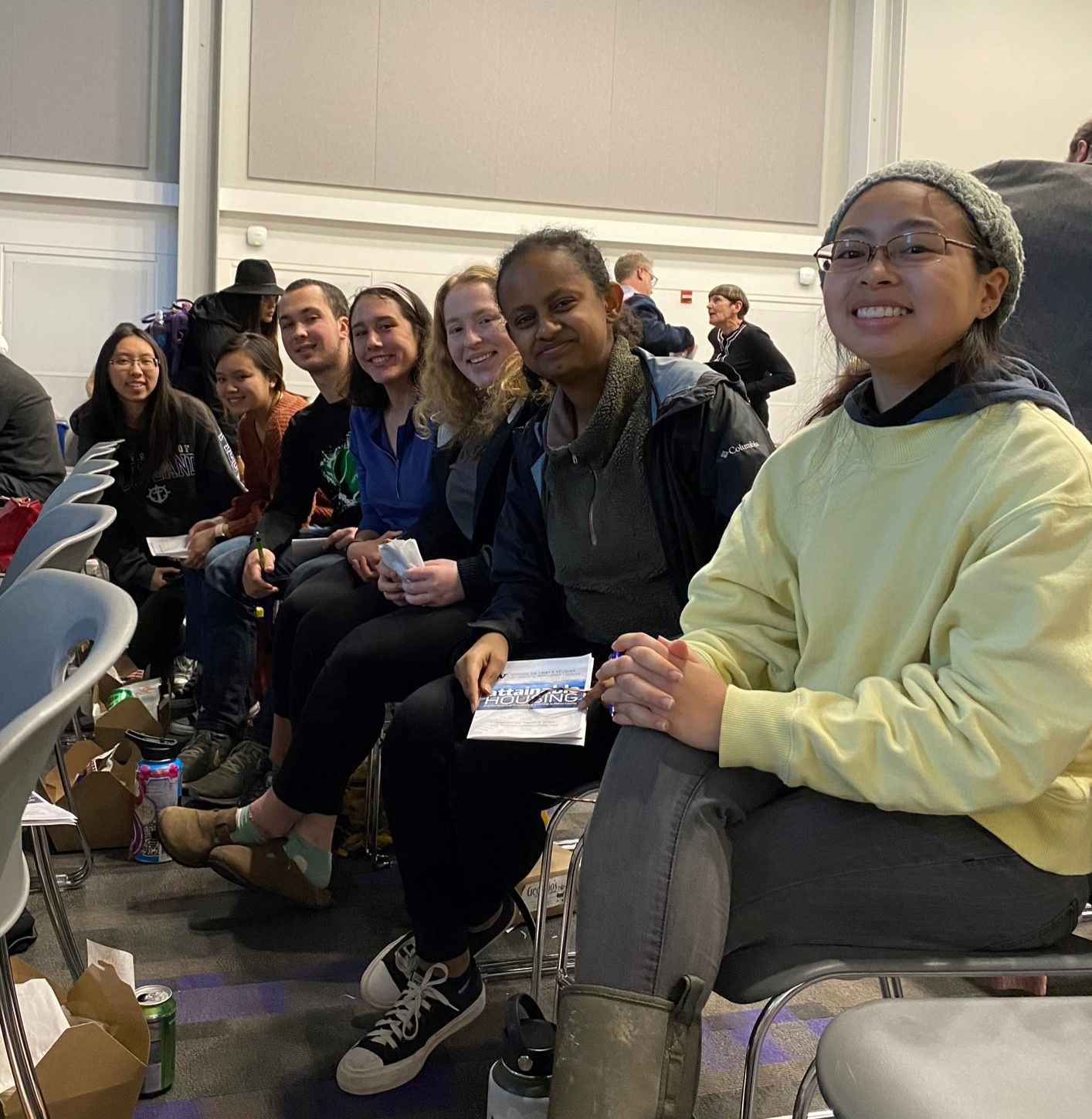March 4th
Today’s big event was the Urban Studies Forum on Attainable Housing hosted at University of Washington, Tacoma. The forum brought together a variety of people to address the issue of attainable housing from multiple angles – even though there is still a lot to be understood about this complex problem, there are a lot of people creating strategies to try and address it. The keynote speaker from University of Illinois at Chicago talked about the importance of not just making affordable housing but keeping it affordable. She pointed out the irony in building a large number of small living spaces in the name of affordable housing, because even though these types of living spaces are great for solo individuals, studio apartments aren’t going to help those who are often the most in need of affordable housing, like families where parents make an income, just not enough to buy a typical market property. And when rent for such places is more along the lines of what a professional earns rather than a low-wage worker, such housing options aren’t actually affordable for the people they’re meant to serve. Expanding on that, she emphasized that it’s not just about making affordable housing, but keeping it that way, for those who occupy the space after.
Local government officials spoke at length about how attainable housing is being addressed in Pierce County where the cities of Tacoma and Auburn are located. They took questions and comments from local citizens and encouraged them to share their stories so that as elected officials, they could better do their jobs in serving those they represent.
In discussions titled “Learning from Others”, national affordable housing experts spoke on what housing insecurity looked like in Denver and Westminster, Colorado and Minneapolis, Minnesota and the strategies being used to address them there. In Colorado, there was an emphasis on tackling the supply side of affordable housing using zoning codes and other policies to ensure that housing is not only affordable and attainable but also stable.
I especially enjoyed the talk given by the representative from Minneapolis. Her presentation showed how race is a hugely important factor at the center of the affordable housing issue. It may be tempting to think about confining the problem to non-white neighborhoods where the income disparities are the largest and affordable housing is most in need, highlighting just how systemic the issue is. Luckily, Minneapolis is making headway through housing reforms that will bring development across the city to all neighborhoods, not just the non-white ones.
Even though the talks were very technical, the passion that all these people had for the issue was very clear. From policy makers and strategists to non-profit workers interacting with people face-to-face, they are all working towards helping people and making more affordable housing a reality, not only for their own cities but across the country, and there’s a lot of work that needs to be done. Because at the end of the day, this is an issue that affects the lives of people. The endgame is for people of all backgrounds and all situations to be able to own a home, simple as that. I never realized it before, but there are a lot of benefits that come with the capacity to own a home, and that really speaks to my own privilege. I’ve never had to worry about or see my parents worry about paying rent or choosing between rent and food. Being able to live in one place provides stability and encourages loyalty to a place, helping to grow a sense of community. Further, ownership can be empowering – knowing that something belongs to you, that you have something that you can leave behind to your loved ones is powerful. I’m grateful to have heard from so many perspectives and I’m really looking forward to continue working with Habitat for Humanity to build a place for someone to someday call home.

Jennifer Ng